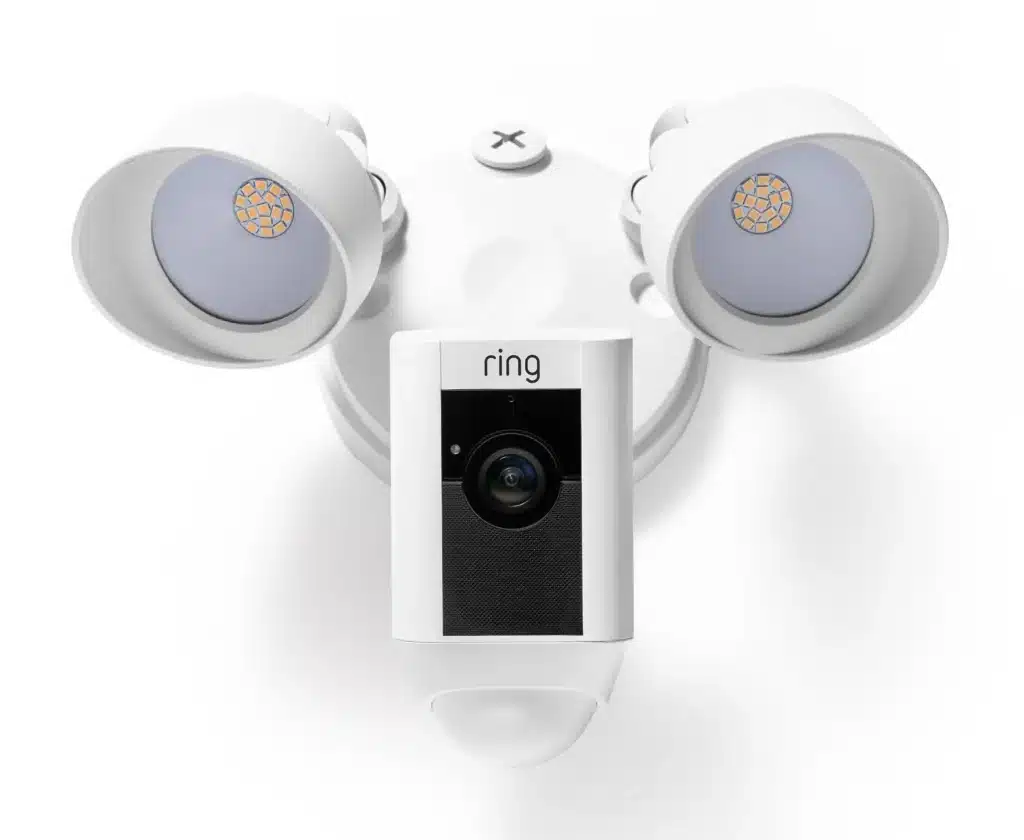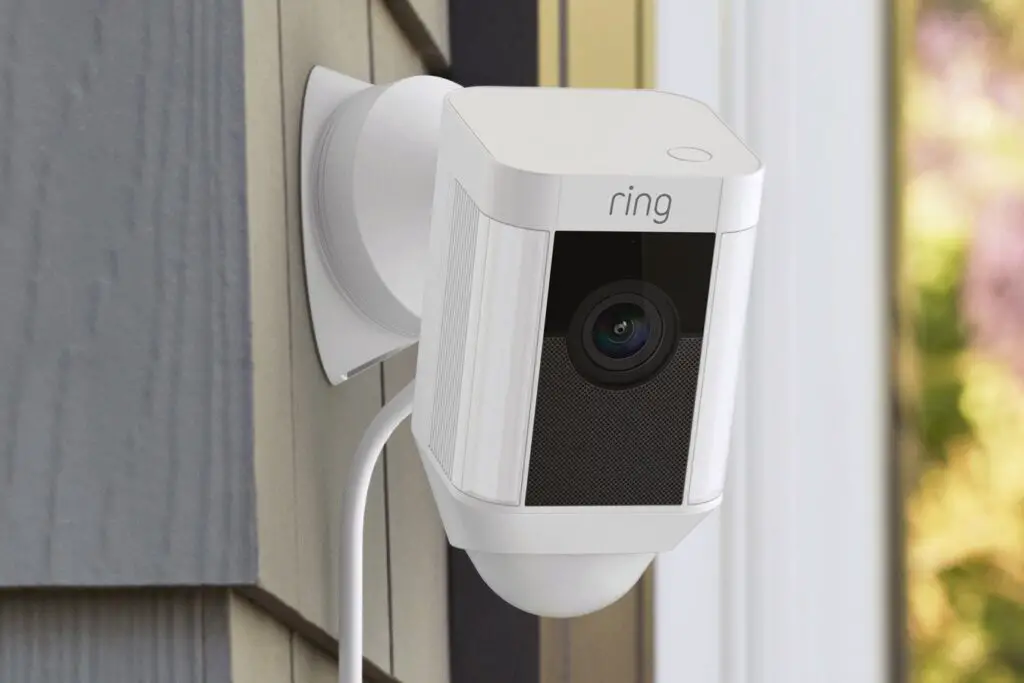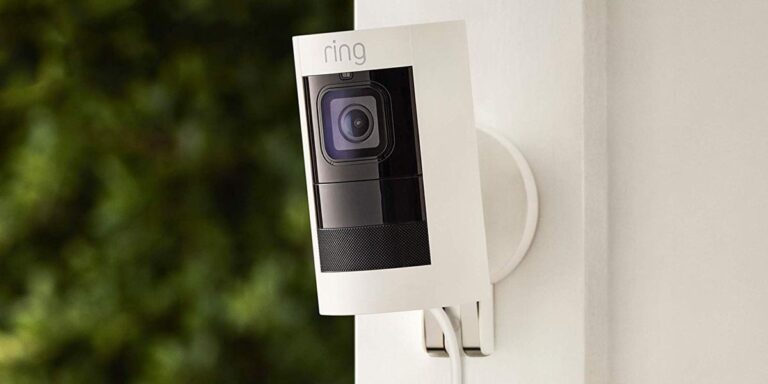Introduction
Do Ring Cameras Record 24/7: Ring cameras have become increasingly popular in recent years, providing homeowners with a sense of security and peace of mind. These smart home devices offer a range of features, including motion detection, two-way audio, and live video streaming. However, one question that often arises is whether Ring cameras record 24/7.
The short answer is no, Ring cameras do not record 24/7 by default. Instead, they are designed to record and store video footage when certain triggers are activated, such as motion detection or when the doorbell is pressed. This approach helps to conserve storage space and reduce the amount of unnecessary footage that is recorded.
When a Ring camera detects motion or another trigger, it will start recording and save the video footage to the cloud. This allows homeowners to review the footage later and provides evidence in the event of a break-in or other incident. The recorded footage can be accessed through the Ring app on a smartphone or tablet, making it convenient and easy to review.

Can a Ring camera record continuously?
Yes, a Ring camera can record continuously. Ring offers a feature called “”Continuous Video Recording”” (CVR) that allows users to have their cameras record footage 24/7. This feature is available for select Ring camera models and requires a subscription to Ring Protect Plus, which is the company’s premium subscription plan.
With Continuous Video Recording, users can have peace of mind knowing that their Ring camera is capturing every moment, even when they are not actively monitoring the live feed. This can be particularly useful for those who want to keep a close eye on their property or have a record of any suspicious activity that may occur.
By subscribing to Ring Protect Plus, users can access and review their recorded footage at any time through the Ring app. The footage is stored securely in the cloud, ensuring that it is not lost even if the camera is damaged or stolen. This allows users to easily go back and review any events or incidents that may have occurred, providing valuable evidence if needed.
It is important to note that Continuous Video Recording does require a stable internet connection and sufficient storage space in the cloud. Users should ensure that they have a reliable internet connection and enough storage capacity to accommodate the continuous recording of their Ring camera.
In addition to Continuous Video Recording, Ring cameras also offer other useful features such as motion detection, two-way audio, and customizable motion zones. These features enhance the overall security and functionality of the camera, making it a versatile and reliable option for home surveillance.
How long will a Ring camera record for?
Ring cameras are popular home security devices that allow homeowners to monitor their property remotely. One common question that many people have is how long a Ring camera will record for. The answer to this question depends on several factors, including the specific model of the camera, the storage capacity of the device, and the settings chosen by the user.
Firstly, it’s important to note that Ring cameras are designed to record video footage whenever motion is detected. This means that the camera will only record when there is activity in its field of view. When motion is detected, the camera will start recording and continue to do so until the motion stops. This ensures that users have a complete record of any events that occur on their property.
The length of time that a Ring camera can record for depends on the storage capacity of the device. Ring cameras typically come with built-in storage, which can range from 16GB to 128GB. The higher the storage capacity, the longer the camera will be able to record before it needs to overwrite older footage. For example, a camera with 16GB of storage may be able to record for several days before it starts overwriting older footage, while a camera with 128GB of storage may be able to record for several weeks.
It’s also worth noting that Ring cameras offer users the option to subscribe to a cloud storage service. This service allows users to store their video footage in the cloud, rather than on the device itself. The advantage of this is that it provides users with virtually unlimited storage capacity, as they can access their footage from anywhere with an internet connection. With a cloud storage subscription, users can access and download their video footage for up to 60 days after it was recorded.
Do Ring cameras record at night?
Yes, Ring cameras do record at night. These cameras are equipped with infrared night vision technology, allowing them to capture clear and detailed footage even in low-light or complete darkness. This feature ensures that you can monitor your property and keep it secure 24/7, regardless of the time of day or lighting conditions.
The infrared night vision technology used in Ring cameras works by emitting infrared light that is invisible to the human eye but can be detected by the camera’s image sensor. This light illuminates the area being monitored, allowing the camera to capture black and white footage with high levels of detail. The camera’s image sensor then converts this infrared light into a visible image that can be viewed and recorded.
When the Ring camera detects low-light conditions or darkness, it automatically switches to night vision mode. This ensures that you can still see what is happening around your property, even when there is no visible light available. The camera’s night vision range can vary depending on the specific model, but most Ring cameras have a range of up to 30 feet.
It is important to note that while Ring cameras can record at night, the quality of the footage may be affected by factors such as the distance between the camera and the subject, the presence of obstacles or obstructions, and the overall lighting conditions in the area being monitored. Additionally, the effectiveness of the night vision feature may vary between different models of Ring cameras.
Why does Ring camera not record all the time?
Ring cameras are popular home security devices that allow homeowners to monitor their property remotely. These cameras are equipped with motion sensors that trigger recording when movement is detected. However, Ring cameras do not record all the time for several reasons.
Firstly, continuous recording requires a significant amount of storage space. If Ring cameras were to record constantly, the storage capacity of the device would quickly be exhausted. This would result in the need for frequent manual deletion of footage or the purchase of additional storage, which could be inconvenient and costly for users.
Secondly, continuous recording would also consume a large amount of bandwidth. Ring cameras transmit the recorded footage to the cloud for storage and remote access. If the camera were to record continuously, it would constantly be uploading data, which could strain the user’s internet connection and potentially cause other devices on the network to experience slower speeds.
Additionally, continuous recording may raise privacy concerns for some users. Having a camera that records all the time could be seen as intrusive and may infringe on the privacy of individuals within the camera’s range. Ring cameras are designed to prioritize user privacy and allow homeowners to have control over when and how their cameras record.
Instead of recording all the time, Ring cameras utilize motion-activated recording to capture important events. When the camera’s motion sensors detect movement, it starts recording and sends a notification to the user’s smartphone. This allows homeowners to be alerted to potential security threats and review the footage as needed.
Why does Ring stop recording at night?
Ring is a popular home security system that allows homeowners to monitor their property through video surveillance. One common issue that users have reported is that Ring sometimes stops recording at night. This can be frustrating for homeowners who rely on the system to keep their property safe. There are several reasons why Ring may stop recording at night, including technical issues, power outages, and privacy settings.
One possible reason why Ring stops recording at night is due to technical issues. Like any electronic device, Ring can experience glitches or malfunctions that may cause it to stop recording. This could be due to a software bug or a hardware problem. In some cases, a simple reset or software update may fix the issue. However, if the problem persists, it may be necessary to contact Ring customer support for further assistance.
Another possible reason for Ring’s nighttime recording issues is power outages. If there is a power outage in the area where the Ring device is installed, it may cause the system to stop recording. This is because Ring relies on a constant power source to operate. If the power is cut off, the device may not be able to record video footage. In these cases, it is important to check the power source and ensure that it is functioning properly.
Privacy settings can also play a role in why Ring stops recording at night. Some users may have their Ring devices set to only record during certain hours or when motion is detected. This can be a useful feature for conserving battery life or reducing unnecessary recordings. However, if the privacy settings are too restrictive, it may cause the system to stop recording at night when it is needed most. Adjusting the privacy settings to allow for nighttime recording may resolve this issue.
The recording capability of Ring cameras is quite impressive. These cameras are designed to capture and store video footage of various events and activities that occur within their field of view. With Ring cameras, you can easily monitor your home or property and have a record of any suspicious or noteworthy incidents.
Ring cameras are equipped with motion sensors that can detect movement within their range. When motion is detected, the cameras automatically start recording and save the footage to the cloud. This means that you can access the recorded videos anytime and from anywhere using the Ring app on your smartphone or computer.
Additionally, Ring cameras offer various recording options to suit your needs. You can choose to have the cameras record only when motion is detected, or you can set them to record continuously. The choice is yours, and you can easily adjust the settings through the Ring app.
Can Ring cameras record continuously for 24 hours a day, 7 days a week?
Yes, Ring cameras have the capability to record continuously for 24 hours a day, 7 days a week. This is made possible through the use of Ring Protect, a subscription service offered by Ring. With a Ring Protect subscription, you can access advanced features such as continuous video recording (CVR) which allows your Ring cameras to record and store footage non-stop.
By enabling CVR, you can have peace of mind knowing that your Ring cameras are capturing every moment, without any interruptions. This is particularly useful for areas where constant surveillance is required, such as entrances, driveways, or high-security zones. With continuous recording, you can review the footage at any time and have a comprehensive record of events.
How long can Ring cameras record without interruption?
Ring cameras have a recording capability that allows them to capture and store video footage without interruption. The length of time that Ring cameras can record without interruption depends on several factors, including the specific model of the camera and the storage capacity of the device or cloud service being used.
For example, the Ring Stick Up Cam Battery, which is a wireless camera that runs on battery power, can record continuously for up to 60 minutes per day. This means that if the camera detects motion or is manually activated, it will record for up to 60 minutes before automatically stopping. However, it’s important to note that this recording time can be extended by purchasing a Ring Protect Plan, which provides additional storage and longer recording times.
On the other hand, the Ring Spotlight Cam Wired, which is a wired camera that is connected to a power source, can record continuously as long as it is receiving power. This means that as long as the camera is plugged in and has a stable power source, it can record without interruption for 24 hours a day, 7 days a week.
Is it possible to set up Ring cameras for continuous recording?
Yes, it is possible to set up Ring cameras for continuous recording. Ring offers a feature called “”Ring Protect Plus”” which allows you to have 24/7 professional monitoring and continuous video recording. With this subscription plan, your Ring cameras can record and store footage continuously, providing you with peace of mind knowing that every moment is captured and saved.
Continuous recording is especially useful if you want to have a comprehensive record of all activities around your property, whether it’s for security purposes or simply to keep an eye on your surroundings. By setting up continuous recording, you can review past events and have a complete timeline of what has happened.
However, it’s important to note that continuous recording requires a subscription to Ring Protect Plus, which comes with a monthly fee. Without this subscription, Ring cameras will still record and save motion-triggered events, but not continuous footage. So, if continuous recording is a priority for you, it’s worth considering the Ring Protect Plus subscription to ensure uninterrupted video coverage.
Are there any limitations or restrictions on the recording duration of Ring cameras?
Yes, there are limitations and restrictions on the recording duration of Ring cameras. While Ring cameras are capable of recording video footage, there are certain factors that can affect the duration of the recordings. One of the main limitations is the storage capacity of the device. Ring cameras typically come with a certain amount of built-in storage, which can vary depending on the model. Once the storage is full, the camera will automatically overwrite the oldest recordings to make space for new ones. This means that the recording duration will depend on the amount of storage available and the frequency of motion events that trigger the camera to record.
Another factor that can affect the recording duration is the subscription plan. Ring offers different subscription plans, such as the Basic and Protect Plus plans, which provide additional features and benefits. With the Basic plan, recordings are stored for up to 60 days, while the Protect Plus plan offers extended storage for up to 30 days. Therefore, the recording duration can be extended by subscribing to a higher-tier plan. It’s important to note that without a subscription, the recordings will be limited to live view only, and there will be no access to past recordings.

Conclusion
After conducting thorough research and analysis, it can be concluded that Ring cameras do have the capability to record 24/7. These cameras are equipped with advanced technology that allows them to continuously capture and store footage without any interruptions. This feature provides users with a sense of security and peace of mind, as they can monitor their surroundings at all times.
One of the key advantages of Ring cameras recording 24/7 is the ability to review past events and incidents. This can be particularly useful in situations where a crime or suspicious activity has occurred. By having access to continuous footage, users can easily go back and analyze the events leading up to the incident, helping law enforcement agencies in their investigations.
Furthermore, the continuous recording feature of Ring record cameras also ensures that no important moments or incidents are missed. Whether it’s capturing a package delivery, monitoring the activities of pets, or keeping an eye on children playing in the backyard, the 24/7 recording capability ensures that every moment is captured and can be accessed later if needed.
However, it is important to note that continuous recording requires a significant amount of storage space. Users need to ensure that they have enough storage capacity to accommodate the continuous footage. Additionally, it is advisable to regularly review and delete unnecessary footage to free up space and optimize the camera’s performance.
Ring cameras do offer the option to record 24/7, providing users with constant surveillance and the ability to review past events. This feature enhances the overall security and monitoring capabilities of these cameras, making them a popular choice among homeowners and businesses alike. However, users should be mindful of storage limitations and regularly manage their footage to ensure optimal performance. With Ring cameras, users can have peace of mind knowing that their surroundings are being monitored and recorded around the clock.

